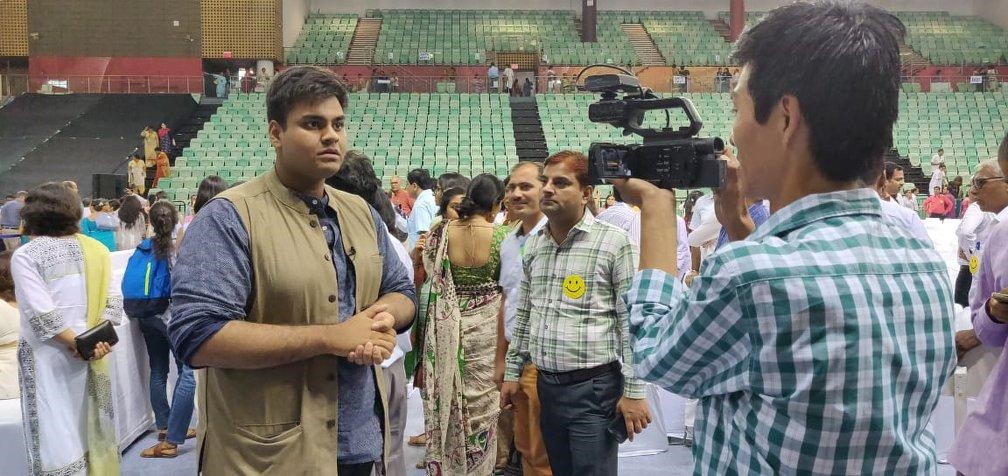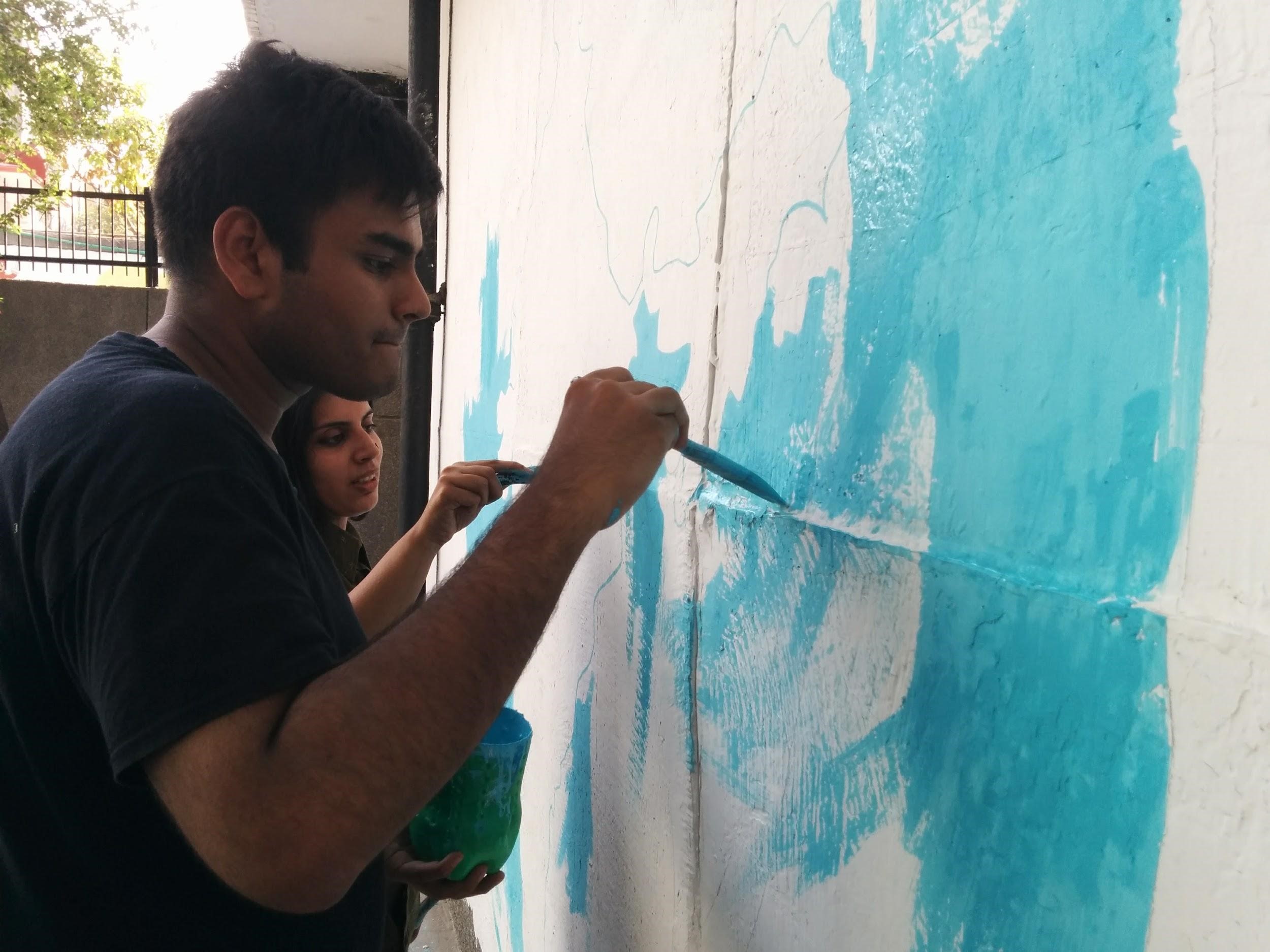Bringing out the diamonds in the rough
April 15th, 2020
Vedant Jain is set on giving children from underprivileged backgrounds the best tools they need to succeed—the discovery of themselves and their abilities. He is co-founder of the ‘Labhya Foundation’; a non-profit that equips children from low socio-economic with critical social and emotional skills. Vedant’s efforts earned him a place as one of the 2020 Commonwealth Youth Awards finalists. Laila Johnson-Salami, 22, a Commonwealth Correspondent from Lagos in Nigeria caught up with Vedant to see what makes him tick.
As I placed a call to Delhi, I did not know that the next hour of my life would hold what is possibly the most thought-provoking conversation I had ever had. The first thing that struck me about Vedant was his genuine interest in others. “Laila, I know you’re supposed to be interviewing me but I want to know about you, so before I answer your first question, tell me about you,” Vedant said to me.
Emotional intelligence is an attribute that Vedant has developed through experience.
When his father became extremely ill in his final year of secondary school and his surgery cost about $500, Vedant became frustrated at the education system.
“Eighteen years of education but I can’t get a job to take care of my family?”, he asked rhetorically. “A holistic mechanism is so important if you want children to succeed and I did not have a well-structured mechanism through school” he said, before concluding that the system was not created to prepare people like him for the real world. This was the beginning of his social justice journey and the creation of the Labhya Foundation (LF).
It all started when Vedant was picked to go on a 10-day programme in rural India.
“I really started to see what children in government schools go through on a daily basis. I could see myself in every single one of them, because I understood how inadequate they felt,” said Vedant.

More than 230 million children in India are enrolled in primary and secondary school today, and Vedant believes that the uncertainty around their future boils down to poverty. He explained that they aren’t just poor financially–they are poor because they feel they have no options in life.
“That is why I have dedicated the rest of my life to the holistic development of children,” he said. “LF creates spaces for children to freely express themselves, think about their purpose and self-explore.”
When I asked about the initial response to his program, he let out a slight chuckle, mentioning that 79 schools rejected him before he finally hit the jackpot. This was mainly because Vedant did not want to supply a system, but to become integrated, ensuring his program had a permanent place in schools’ curricula.
Social Emotional Learning (SEL) is the most important aspect of primary education, which he describes as “the process of someone knowing their purpose, potentially being able to recognise and maintain their emotions and maintaining healthy relationships”. Unfortunately, SEL isn’t prioritised in India, because very little research exists to support it.
So when the Delhi State government announced that they were zeroing in on the wellbeing of children and launched a request for the development of a Happiness Curriculum, Vedant’s dream was realised.
Out of nearly 2,000 proposals, five organisations were shortlisted to create the curriculum, including his. Today, three years after the launch of the Labhya Foundation, Vedant is impacting not only millions of children, but also 110,000 teachers and 19,000 schools a day through the Happiness Curriculum, which is also one of the largest social-emotional intelligence interventions in the world.
“We need to think about systemic-level change. Government is the largest changemaker in society so we have to find ways to influence and enable government”, he said.
At the age of just 25, Vedant demonstrates that tiny pebbles certainly can create the largest ripple effects. Just how large of a ripple effect, we are yet to see.
………………………………………………………………………………………………………………………………………………………
The Commonwealth Youth Awards for Excellence in Development Work highlight the contributions of young people who are making a difference in their communities and celebrate their contributions to the Sustainable Development Goals (SDGs).
………………………………………………………………………………………………………………………………………………………………………
About me: I am a journalist, reporting on TV and radio as an anchor for Wazobia Max and Nigeria Info FM. I am also the founder of the We Rise Initiative, a non-governmental organisation empowering woman and girls to rise above 21st century oppression, and a member of the 67 Million Initiative – Nigeria’s most active youth organisation. Reach me on Twitter: @ljsonline
………………………………………………………………………………………………………………………………………………………………
Opinions expressed in this article are those of the author and do not necessarily represent the views of the Commonwealth Youth Programme. Articles are published in a spirit of dialogue, respect and understanding. If you disagree, why not submit a response?
To learn more about becoming a Commonwealth Correspondent please visit:
http://www.yourcommonwealth.org/submit-articles/commonwealthcorrespondents/
…………………………………………………………………………………………………………………………………………………






